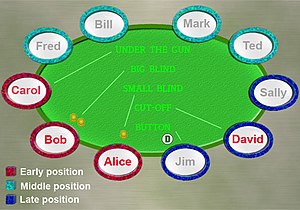Good Stakes For A Bet
I spent a good part of my early betting days making across-the-board bets, especially when I landed on a longshot, and there is something to be said for being rewarded when a bomb clunks up or hangs on for a minor spot, but in general I’ve come around to betting almost exclusively straight win bets when I’m not playing exotic bets.
- Betting Stakes explained. You will see it repeated over and over again in our betting guide, have a betting plan. From money to betting strategy, have a plan! Money management is so important in order to stay in control and a staking plan can help out a lot. There are so many different systems which you could use.
- A few good rewards for winning a bet with friends are:.A temporary swagger amid boasting rights until the next bet comes along.The delight in seeing them fork over some cash, tickets to a concert, movies, and/or sporting-event.
The only one of these terms which is obviously straightforward is ‘Bet’, and I am sure all of you understand what a bet is.
Even the term ‘Stake’, at least so long as it is money related, is easily understandable.
Whatever level your stake is, there are only two options: you either lose the bet and your stake, or you win the bet, retrieving your stake and adding to it your winnings.
However, the term ‘Odds’ is far more difficult for most bettors, especially as odds are connected to market prices, fluctuations, probabilities, expectations, etc.
Hand on heart, can YOU reliably define the terms “bet”, “odds”, and “stake”?
What is a BET?


Definition of ‘Bet’: Technically speaking, a ‘bet’ is an agreement between two parties that the one who makes an incorrect prediction about an uncertain outcome will forfeit something stipulated to the other – a wager.
Betting is all about risking something, usually a sum of money, against the money of someone else based on the outcome of a future event, such as the result of a race or other competitive event.
What are ODDS?
The term, ‘odds’, is somewhat ambiguous.
Here are two definitions from well-known dictionaries:
Macmillan Dictionary: The chances that are used for calculating how much money you will get if the person or thing you bet on wins a race or competition.
Oxford Dictionary: The ratio between the amounts staked by the parties to a bet, based on the expected probability either way.
The problem with the above definitions (and many other definitions found in dictionaries) is that odds are not necessarily connected to the real chances of something happening, not even to ‘expected’ probabilities.

Just think of British odds, European odds, and US Moneyline odds.
British odds show the net return of a bet, European odds display the net return of a bet plus the original stake, and US Moneyline odds exhibit the money wagered either to win 100 units, or the money which will be won from a 100 unit stake.
Another deviant example is that bookmakers adjust their odds to public opinion in order to balance their books.
Therefore, it is simply incorrect to say that ‘odds’ display the chances of something happening. Odds are not even necessarily based on expected probabilities.
Betting Odds are the Prices for a Bet
Learning Point: There is NO connection between the market odds of a bet and the real probabilities of the event occurring.
What does the term STAKE mean?
Good Stakes For A Bet Belmont Stakes
Definition of ‘Stake’: Money or property risked on the result of a horse race, card game, match outcome, etc.
Stake (or ‘wager’ in America), is straightforward terminology.
You bet with your friend on a game of pool, and stake £5 each. Whoever wins the game gets £5 from the other party, and whoever loses is £5 poorer.
In betting, the stake (or ‘wager’) usually means money, which is countable.
The concept of stake becomes much more complicated if property is wagered, such as houses, cars, or in some countries even wives! If you gamble property then you not only have to calculate the true probabilities of a bet to compute the odds, but also convert the staked property into a monetary value.
In these cases bets are very often lopsided and unfair, with a huge advantage to the person who is better in maths than the other. (Read an example: Arsenal fan staked his house on a bet with a Manchester United fan, who offered his wife and Toyota car in return )
Bet, Odds, and Stake – Conclusion
The only honest advice I can give – Do not bet if you do not understand odds!
Unless money is no object, few people will go shopping and load their basket with goods without checking and comparing the prices of different brands. Most of us need to ensure we have enough money available to pay for the purchases, and some of us like to ensure we are getting the best value for the money we pay.
Good Ideas For Bet Stakes

Understanding Odds is CRITICAL! If you constantly go shopping without paying attention to the prices (ignoring the significance of odds), or do not bother comparing brands before buying them (failing to shop around for the best odds), you will certainly end up paying more than others (failing to capitalise on your betting investments), and in the long run be able to buy fewer products for your money (losing more money than you win).
Always remember: Odds are the price for a bet, they very rarely stand for the real probabilities, or chances.
Of course, odds available in the market can be converted into their ‘implied’ probabilities, which can then be compared to your own calculations of the ‘real’ expected probabilities, and vice versa.
If you want to become a winner you MUST understand odds and be able to compare and distinguish between the implied probabilities suggested by the odds offered in the market and the real (or true) probabilities suggested by historical statistics. There is no alternative – a lucky gambler is never lucky all the time.
If you wish to learn odds calculation, please check out: